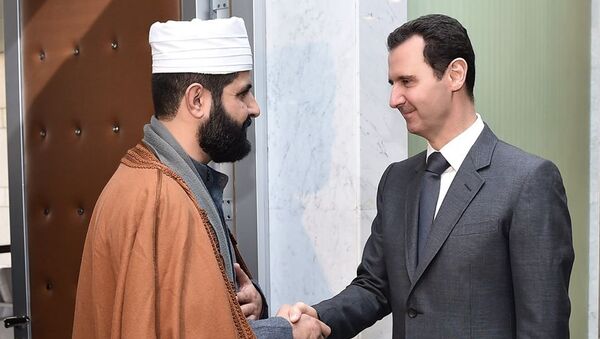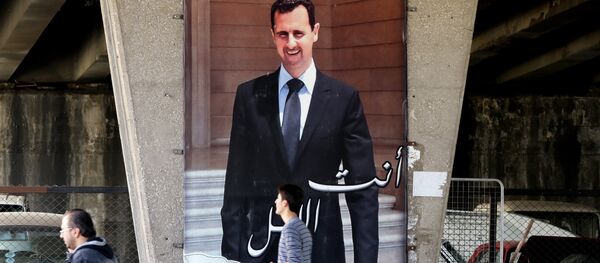The original story, published over the weekend, pointed to a mysterious eight-page document "obtained by the BBC," claiming that Alawite clergy leaders were looking to "distance themselves from Assad," and "outlin[ing] what kind of future they wish for the country after five years of civil war."
Jumping on the BBC story, Arab media including Al-Jazeera spread it across the Arab world, citing British sources, without seeing the original of the document on which the BBC report was based.
Seeking to find out whether there was any truth in the rumors about Alawite community and religious leaders' shifting political affiliations, Sputnik Arabic spoke to Sheikh Ahmad Bilal, an official representative of the clergy of Syrian Alawites, and director of the Syrian Institute of Theology.
To begin with, Bilal suggested, there could be no secret document on the Alawites' rejection of Assad. "None of our scholars or sheikhs have spoken of any renunciation. Our country has united within it all religious denominations, and Bashar Assad is a symbol of Arab resistance [to imperialism and Zionism]."
"We are looking at this as another failed attempt in their [Syria's enemies' ed.] plotting against our country. Once again they try to divide our country. After all, Salih al-Ali [prominent Syrian Alawite leader] was once offered an Alawite state. But nothing came of it, because Damascus for us comes before Latakia" (the latter is the historic home region of the Alawites).
"We are one country, and have common blood. Let them first prove that such a document exists. This is just another attack in the information warfare being waged against Syria," Bilal concluded.
In the postscript to the interview, Sputnik Arabic emphasized that in order for the Alawite clergy to denounce any one person, group of persons, or organization, the clergy must first hold a conciliar meeting and issue an official (i.e. not a secret) document notifying all representatives of the confession via the responsible religious leaders of their decision.




